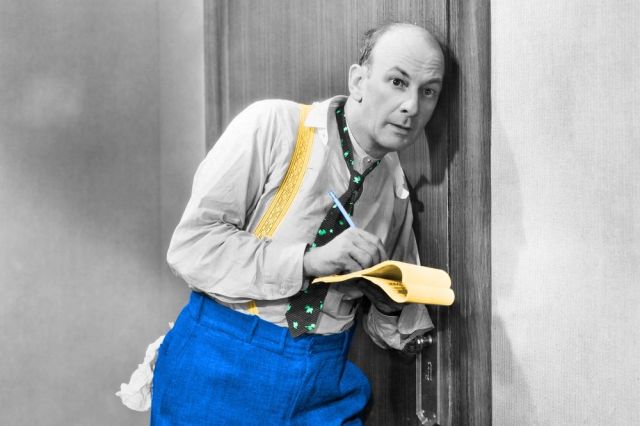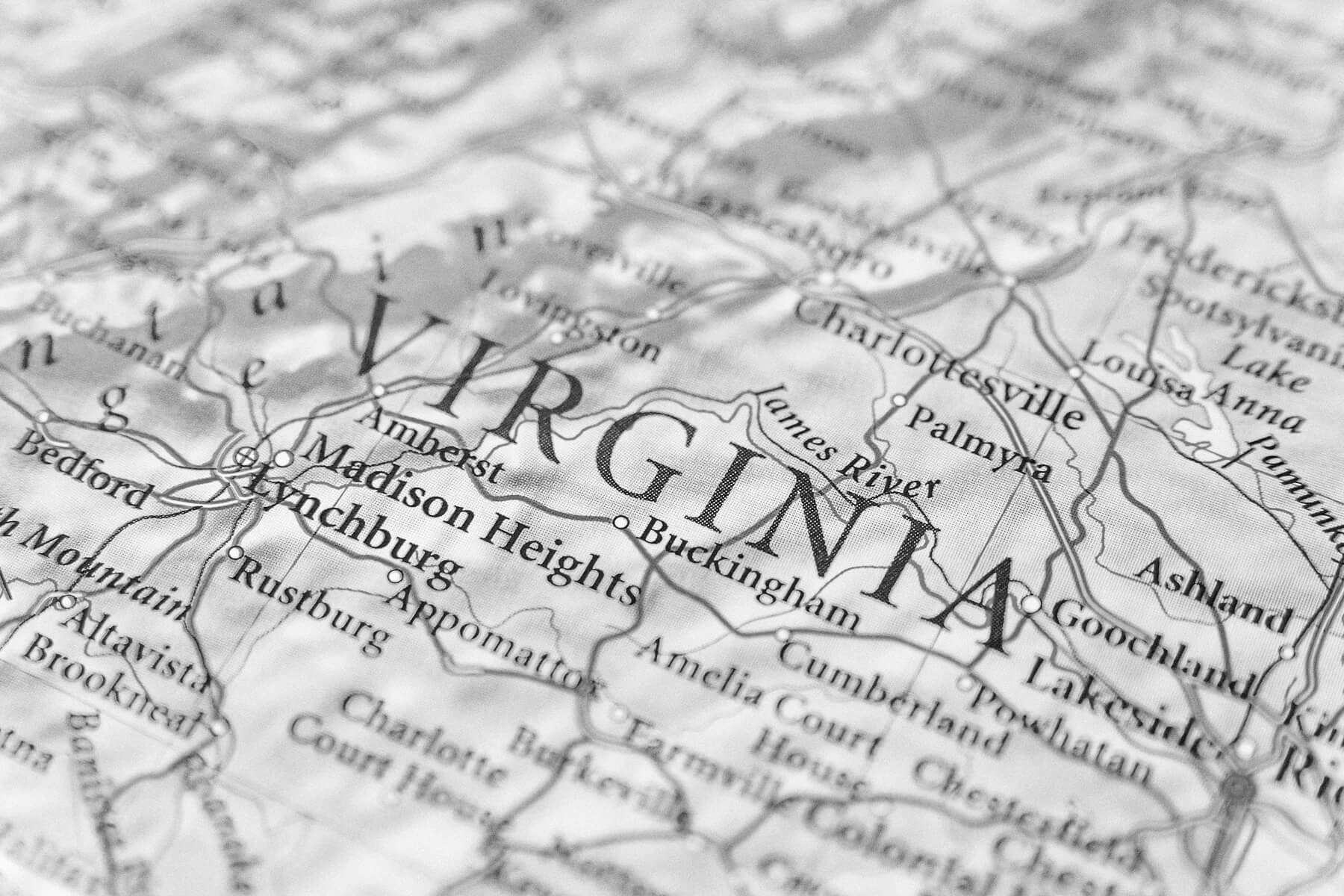
It’s Illegal to Sell Fake Butter as Real Butter in Iowa
It’s a misdemeanor in Iowa to either directly or indirectly state that oleo, oleomargarine, or margarine is a dairy product, a relic of an era when such laws were common. The law goes on to explain all the manifold ways in which it’s illegal to lie about fake butter: “by statement, printing, writing, circular, poster, design, device, grade designation, advertisement, symbol, sound, or any combination thereof.” It also specifically prevents the purchase of margarine under the pretense of it being butter.

According to Its Legal Code, Wisconsin’s Cheese Must Please
Speaking of dairy products, when it comes to cheese, Wisconsin isn’t playing around. The state whose citizens wear cheese-shaped hats to their football games has unsurprisingly strong standards when it comes to their proudest export, and not just any old cheese is allowed to represent Wisconsin. Per chapter 81 of the administrative code of the Department of Agriculture, Trade and Consumer Protection, state-certified Muensters, Monterey Jacks, colbys, and cheddars must be “highly pleasing.” Meanwhile, Swisses and Emmentalers are required to “have a pleasing and desirable characteristic Swiss cheese flavor.”

In California, You Can’t Eat Frog That Was in a Jumping Contest
California has somewhat complicated laws surrounding jumping contests involving frogs. In the Golden State, it’s legal to challenge frogs to compete against one another in a jumping contest, but if you try to eat one of them, you could be in hot water. According to the state’s Fish & Game Code, “if such a frog dies or is killed, it must be destroyed as soon as possible, and may not be eaten or otherwise used for any purpose.” As well, the red-legged frog — the species that starred in Mark Twain’s 1865 California-based short story, “The Celebrated Jumping Frog of Calaveras County” — is barred from competing, due to its status as an endangered species. The popular choice for the real-life Calaveras County Jumping Frog Jubilee is the non-native eastern bullfrog, and it’s illegal to return them to the water after the contest, because they’re a big part of the reason that their red-legged cousins got so endangered in the first place.
More Interesting Reads

No X-Raying Your Feet in a Washingtonian Shoe Store
Washington state has zero tolerance for radioactive feet in its shoe stores. Per RCW 70.98.170, “the operation or maintenance of any X-ray, fluoroscopic, or other equipment or apparatus employing roentgen rays, in the fitting of shoes or other footwear or in the viewing of bones in the feet is prohibited.” Seems like a pretty rare occurrence — but it didn’t used to be. Between the 1920s and the 1960s, when radiograph technology was new, it wasn’t uncommon for American shoe stores to provide X-ray machines to display customers’ podalic bones, thanks to an incorrect theory that it would help optimize the fit of their shoes. This unwittingly exposed customers to unhealthy doses of radiation in the process, and in 1971, the FDA finally put the kibosh on shoe store fluoroscopy. It’s now illegal in all U.S. states, but Washington was an early adopter, and put this law on the books in 1961.

You Can Only Buy Room-Temp Soda or Water in Indiana’s Liquor Stores
It’s not clear what the Hoosiers have against a nice cold nonalcoholic beverage, but you can’t buy one at its liquor stores. The list of commodities that an Indiana liquor store is allowed to sell includes “uncooled and uniced charged water, carbonated soda, ginger ale, mineral water, grenadine, and flavoring extracts,” but cooler or iced versions are not on the docket.

Don’t Abscond into the Dark New Hampshire Night with Seaweed
The Granite State takes its gardens seriously — even the underwater ones. In 1973, the act of carrying away or collecting seaweed specifically at night in New Hampshire became a violation of the law, with an unspecified punishment. It’s theorized that the law stems from the practice by farmers of hauling seaweed ashore to help fertilize their corn fields, and the ban on nighttime seaweed harvesting hypothetically gives other folks a chance to collect their own. Wanna swipe some seaweed from Portsmouth’s shores during the day? Totally fine. Just don’t be sneaky about it.

In Massachusetts, It’s Illegal to Scare a Pigeon
Since 1848, it has been illegal in the state of Massachusetts to not only kill a pigeon but also to purposefully frighten one from “beds which have been made for the purpose of taking them in nets.” Offenders face up to a month in prison as well as a $20 fine, and they’re also liable “for the actual damages to the owner or occupant of such beds.” According to Massachusetts Historical Society librarian Peter Drummey, the law was a sign of the times — in the 19th century, pigeons were both a food source for residents and used in target shooting, so the law was meant to protect hunters’ rights (rather than those of pigeons). While now outdated, the law, like many others in Massachusetts, has remained on the books.

Eavesdropping Is Forbidden in Oklahoma
If you have trouble minding your own business, you might want to stay out of the Sooner State. Per a 1910 Oklahoma state law, “Every person guilty of secretly loitering about any building, with intent to overhear discourse therein, and to repeat or publish the same to vex, annoy, or injure others, is guilty of a misdemeanor.” It’s seemingly allowable to accidentally overhear some juicy gossip; just make sure not to do so intentionally. Though rarely enforced, it’s one of many bizarre laws in Oklahoma — like a $1 fine for swearing in public.

Banning Clotheslines Is Banned in Vermont
If you find yourself in Vermont and in need of fresh laundry, you have a right to hang a clothesline to dry your clothes. It’s illegal for anyone to ban the use of clotheslines “or other energy devices based on renewable resources” in the Green Mountain State. Unlike most others on this list, the law is actually from this century; it was passed in 2009. It’s common for homeowner associations to ban homeowners from “solar drying,” with some calling it unsightly — but not any longer in Vermont. State Senator Richard McCormack inserted the law into an energy bill because he’d long sought to protect this very green way to dry your clothes. Interestingly, the law doesn’t apply to patio railings in apartments or condos, so Vermonters will want to stay on the safe side and use an actual clothesline.

In Alabama, You Can’t Pretend to Be a Member of the Clergy
It’s unclear why this 1965 law was adopted, but it reads in part: “Whoever, being in a public place, fraudulently pretends by garb or outward array to be a minister of any religion, or nun, priest, rabbi or other member of the clergy, is guilty of a misdemeanor.” The strange law goes on to explain the punishment — a fine of up to $500, or up to a year spent in jail, or both. This law extends to dressing as the Pope (or any other clergyperson) for Halloween, if you aren’t actually one. It’s unclear if anyone has been prosecuted for breaking the law, but perhaps it’s worth picking another costume to be on the safe side.

You’re Not Allowed to Play Bingo for More Than Five Hours in North Carolina
Bingo sharks, beware: You’ll need to pace yourself when you’re visiting the Tarheel State. Not only is there a statewide five-hour cap on all bingo games, but you also can’t hold two separate bingo sessions within a 48-hour period — they must have a buffer in between of more than two days. North Carolina has a long history of conservative rules on gambling that goes back to its colonial days. In 1749, the General Assembly was already regulating “excessive and immoral” gambling practices and invalidated gambler’s debt greater than £100, and the regulations on games and lotteries only snowballed from there. Lotteries were banned outright in 1835. While bingo is legal in North Carolina today, there is a long list of restrictions. In addition to the time limits, bingo is allowed to be played only for fundraising purposes unless the prize is less than $10 (locals call this “beach bingo”). And if the game is played as a fundraiser, the prizes can’t exceed $500.

Happy Hour Is Not Allowed in Utah
It’s illegal to sell alcohol at a discounted price in the state of Utah, so that means happy hour at the hotel bar is out of the picture. In its place, many establishments offer “appy hour,” when appetizers are on sale instead. Other restrictions on Utahn drinkers include only one 1.5-ounce shot of alcohol allowed per drink (so no doubles, unless you’re drinking a cocktail, which allows 2.5 ounces of booze as long as the extra ounce is a less-potent spirit). There is also a maximum of 4% alcohol by weight or 5% alcohol by volume on draft beer (although higher-octane brews are available in stores) and a statewide last call of 1 a.m.

Billboards Are Prohibited in Hawaii
They take their ocean vistas very seriously in the Aloha State, and understandably so. If you’re driving around the islands in the state of Hawaii, you won’t find any obstructions to your view, at least not in the form of billboard ads — they’ve been outlawed since 1927. Several exceptions are allowed, however, including ads affixed to the Waipio Peninsula Soccer Stadium. Hawaii was actually the first state in the U.S. to ban the roadside advertisements — long before it even became a state in 1959. Vermont followed suit in 1968, Maine did so in 1978, and Alaska joined the club in 1998. It’s no accident that these four states are known for their spectacular natural beauty, and it’s understood among Hawaiians that keeping those unspoiled views intact promotes tourism more effectively than any billboard could.

Pawn Shops Can’t Handle Artificial Limbs in Delaware
“Pawnbrokers, second hand dealers, and scrap metal processors” have their work cut out for them in Delaware, as they must follow a lengthy legal rule book regarding what, how, and when they’re allowed to accept goods to be pawned. “No pawnbroker subject to this chapter shall take or receive as a pledge or pawn any artificial limb or wheelchair,” the law states. It’s not illegal for you to pawn your own wooden leg or wheelchair, therefore, just for a pawnbroker to accept it. They’re also not allowed to take manhole covers. When it was originally passed in 1907, the law banned pawnbrokers from accepting workman’s tools too, although that provision has since been dropped.











